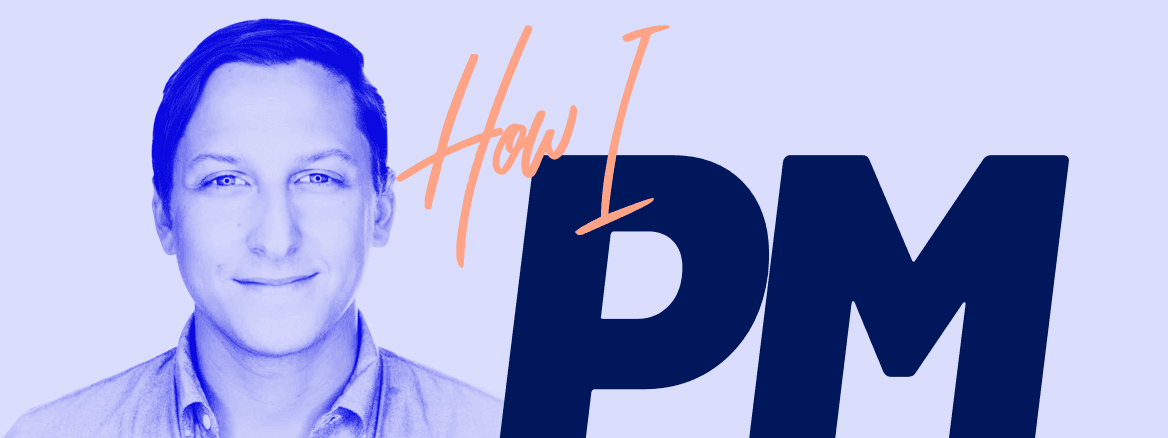How I PM: David Packles, Senior PM at Peloton Cycle
David is the Senior Product Manager at Peloton Cycle and this is how he product manages.
David Packles was a PM before he knew what product management was. A career in finance, another in consulting and a stint in freelance laid the stepping stones for David to find product. While helping small creative agencies build processes and systems to grow, he learned that an actual role for this existed and it was called product management. He landed his first official product role at Peloton, the company behind the smart indoor exercise bike that’s taking the fitness world by storm. Three years later, he co-owns the software experience for the bike (and soon to be treadmill).
We are thrilled to have David as a panelist at ROADMAP | NY Product Summit in May 31, 2018.
Name: David Packles
Current role: Senior PM, Peloton
Location: New York City
“As product managers, it’s our responsibility to make informed decisions about where to take our product and get the team fired up about executing on that vision.”
How did you get to where you are today?
My path to product management was far from straightforward. Out of school, I started my career as a financial analyst at a major bank. I spent 90% of my day in Excel, structuring data, running analyses and automating workflows. I liked data and I liked building models, but overall I was miserable. I made a commitment to never work anywhere that I didn’t believe in the product.
I then made a move to the operations side of a global innovation consulting shop, where I built out their internal measurement and analytics tools. I had a short stint as a consultant, where I took on a few projects in technology, but nothing really clicked. I found consulting to be intellectually stimulating, but the fact that I never saw my ideas through to completion left me wanting more.
I then began taking on projects of my own. Helping small creative agencies implement the tools and processes they need to grow. It was here I started hearing of this role called product management, and I realized it was how I was approaching problems my whole career. I identified the gaps in my experience – specifically around ux design, development and management, and started finding ways to fill them in (codeacademy, online tutorials, etc)
I heard of Peloton through a friend, and at the time they were just building out their PM team. The head of product had a background in ux, and was looking for someone with more business/analytical experience, and he gave me a shot.
I’ve now been with Peloton the last 3+ years, and have helped build out their product management discipline. I currently co-own the software experience on the bike (and soon to be tread).
What role do you think data has in product management?
As product managers, it’s our responsibility to make informed decisions about where to take our product and get the team fired up about executing on that vision. As a first mover in the market, few of these decisions are clear cut, but usually there are signs pointing to the right direction if you know where to look.
We have an incredibly active Facebook community (100k members, one of the strongest groups on Facebook), which I look at every single day. Grounding myself in the conversations happening there helps me keep my pulse on our members’ needs, desires, and emergent behaviors.
“I lean on data to help confirm or deny hypotheses, and to understand the scale of a problem or user need.”
What’s the best thing you’ve read to learn how to be better at your job?
I think when I was looking for a job as a PM, I read every single article I could find (Ben Horowitz, Good Product Manager, Bad Product Manager, etc). But now, I tend to immerse myself in books relating to human behavior.
One that I am particularly fond of is The Power of Habit. Not only is this applicable to my work (working out is a habit that must be triggered and rewarded), but its helped me develop my own working habits to remain focused and productive.
What’s the best advice you’ve ever received on how to be a PM?
This is advice is more of a global principle that I live my life by. Thats to keep an open mind, listen to others, and treat people with respect. I encourage engineers on my team, support agents, etc to speak up if they disagree with a decision, and to engage in healthy debate. I am first to admit, I am not always right, and I firmly believe the best way to get to the best product is to listen and engage others, regardless of where they sit within (our outside) the org.
“I firmly believe the best way to get to the best product is to listen and engage others, regardless of where they sit within (our outside) the org.”
When it comes to professional growth, what are you most focused on right now?
Peloton continues to be a growing company, and my time lately has been focused on building a team. Little can prepare you for scaling a product and engineering org in a business growing as quickly as Peloton, so I’ve been focused on best practices on hiring, management and team structuring.

Cara Harshman
Former Managing Editor, Amplitude
Cara was formerly the Managing Editor at Amplitude. Before joining this crew of super-passionate, smart individuals, she wrote and spoke a lot about A/B testing and personalization at Optimizely. She has spoken at MozCon, CTA Conference, Opticon, and Learn Inbound.
More from Cara




